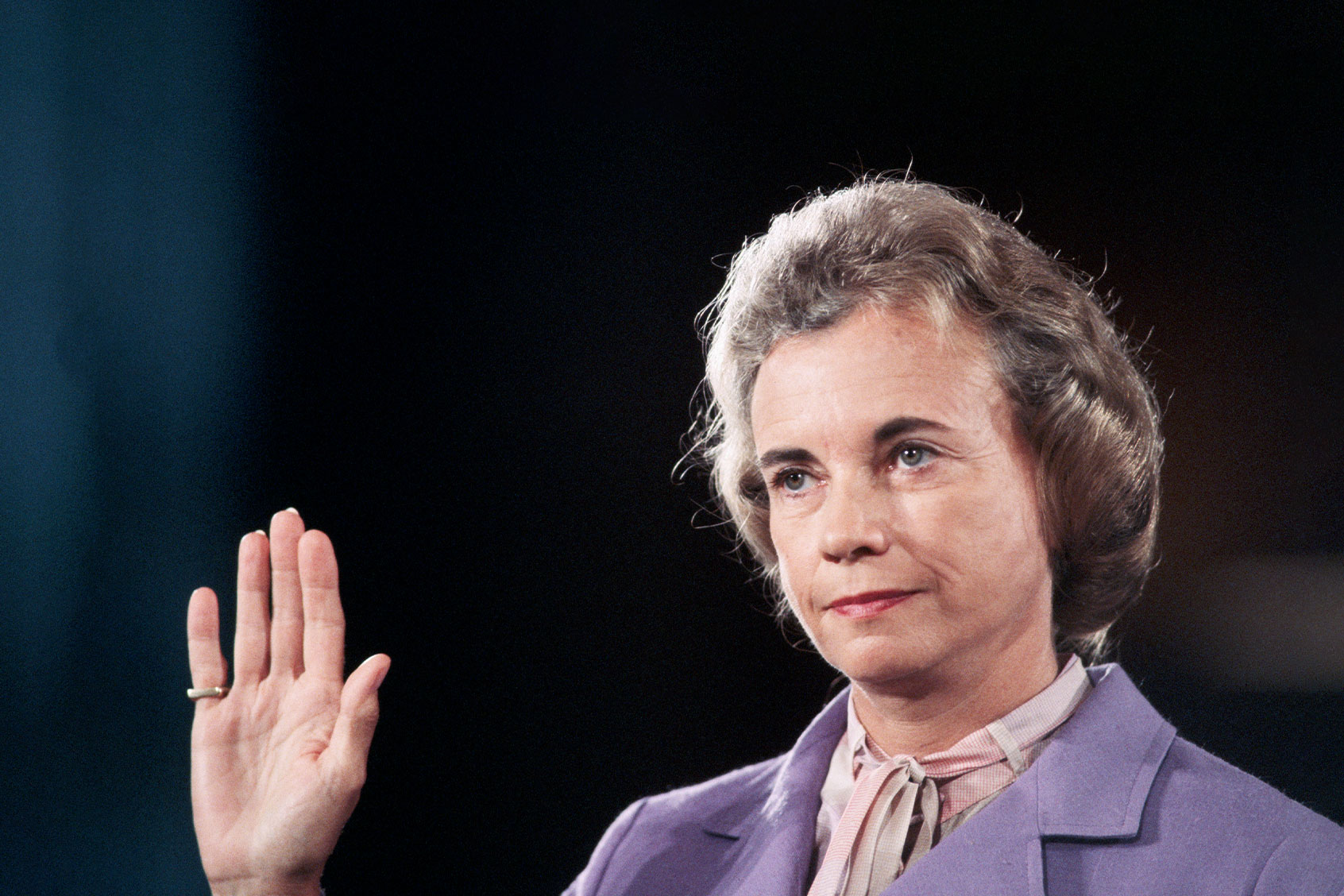Sandra Day O'Connor, the first woman to serve on the Supreme Court, died on Friday in Phoenix at age 93, The New York Times reports. The Supreme Court announced her death in a statement, citing dementia complications as her cause of death. O'Connor, a rancher's daughter who grew up in and lived in Arizona most of her life, held great power over American law while as a justice, her ideology falling at the center of the court's spectrum.
In a letter she released in October 2018, O'Connor, who had been out of the public eye for some time, announced that she had been diagnosed with the beginning stages of dementia, "probably Alzheimer’s disease,” and would be withdrawing from public life. Appointed in 1981 by then-President Ronald Reagan, the justice during her tenure was often referred to as the most powerful woman in America, and the Supreme Court called the "O'Connor court." When it came to the most polarizing issues on the court's docket, little could happen without O'Connor's support — she played a key role in deciding the law pertaining to affirmative action, abortion, voting rights, religion, federalism, sex discrimination and major matters.
The middle ground she straddled often reflected the public's as she strove to heed current events and public attitudes. “Rare indeed is the legal victory — in court or legislature — that is not a careful byproduct of an emerging social consensus,” she wrote in a collection of her essays published in 2003. After the ideology of the court shifted rightward, her moderate conservativism came to appear relatively liberal and, following her retirement, she lamented that some of her majority opinions were being "dismantled." O'Connor served on the Supreme Court for 24 years, retiring in 2006 to care for her ailing husband.


